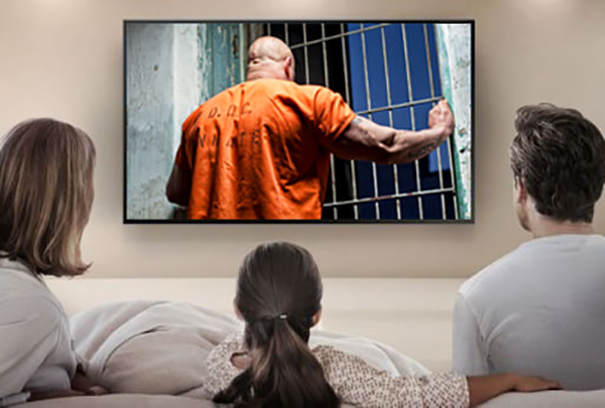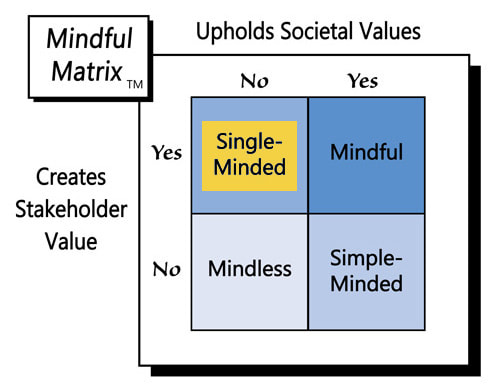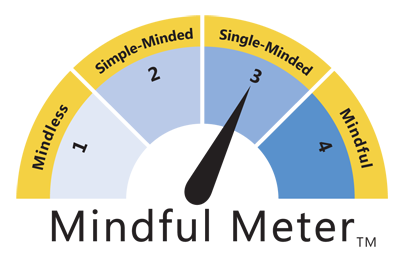A week ago, America suffered yet another incident of mass murder. This time the tragedy took place in Pittsburgh, where a gunman entered the Tree of Life Synagogue and took the lives of 11 people, while also wounding several others.
Just a day after the shooting, the killer’s name, which I won’t mention here, was already approaching 30 million hits in a Google search, and detailed background information about him filled articles including ones in the New York Times, CNN, and the Washington Post. That’s already much media exposure for a murderer, but his ‘15 minutes of fame’ is just beginning.
In the days and weeks to come, many more details of the massacre will surface, and analysts will paint a clearer picture of who the gunman was and what caused him to act. However, even those news accounts probably won’t end the perpetrator’s publicity. It’s very likely that the killer will eventually become the focus of at least one made-for-television documentary.
Why does such programming seem so certain? At least three networks now have television series dedicated to detailing the actions and lives of well-known murderers:
- Netflix’s I am a Killer features death row inmates giving firsthand accounts of their crimes.
- CNN’s How it Really Happened describes “some of the most notorious crimes, mysteries, trials, and celebrity tragedies of our time.”
- Oxygen’s It Takes a Killer examines “the world's most notorious murders and takes you inside the minds of the killers.”
In fact, Oxygen has much more than one TV show focused on killers. Oxygen Media, which is part of NBC-Universal, describes itself as “a multiplatform crime destination brand for women” that is in over 77 million homes. The network also airs a show called Method of a Serial Killer, and it has a webpage titled “Martinis and Murder. In other words, whether on TV or online, Oxygen is all crime, all the time.
You may be thinking, “Television based on crime, even murder, isn’t anything new.” That’s true; however, the newer genre of crime TV is different than past TV series. For instance, writers scripted the crime in classic shows like Columbo, Matlock, and Murder She Wrote, i.e., the programs weren’t based on real murders. Furthermore, the focus was on solving the crime not on the gruesome act itself or on the life-story of the person who did it.
On the other hand, shows like America’s Most Wanted and The Hunt with John Walsh did feature the crimes of real killers, but the reason was to gain the public’s help in finding the fugitives so they could be brought to justice. These shows gave enough information about the murderers to facilitate their capture; they certainly didn’t glamorize the killers.
Of course, it’s unlikely that the creators of I am a Killer or any of the other new shows have an agenda to idolize murderers. The producers probably just want to satisfy viewer desires, and unfortunately many people have an appetite for information about killers.
For instance, just two days after the recent tragedy in Pittsburgh, a Google search of “synagogue shooting” produced 19.9 million hits, while a similar search of “synagogue shooter” yielded 82.7 million—over four times more.
So, why not give people what they want? If TV viewers are fascinated by murderers’ methods and bios, what’s wrong with letting them watch those things? Actually, when it comes to murder, there are several reasons why it's best not to give consumers what they want, but rather to give society what it needs.
First, it’s important to recognize that unlike America’s Most Wanted, TV series like I am a Killer do little to improve anyone’s safety. The serial killers the latter show highlights are already behind bars and no longer a threat, whereas those in the former were still on the lam and needed to be caught.
One might argue that I am a Killer could help others identify unbalanced individuals and perhaps prevent future slayings, but the program seems just as likely to motivate people on the cusp of violence to act out their hostilities, partly because of the recognition they will get. Fame could very well be an extra incentive for them to kill.
Consistent with that thought, it’s notable that networks have long-since stopped broadcasting people who trespass on the field or court during sporting events. Even though many TV viewers are probably curious and would like to see the spectacles, the live shows’ producers quickly select other camera shots, as announcers divert attention from the unseen disruption. The reason: Networks don’t want to give the interlopers the undeserved fame they seek or encourage others to follow suit.
Second and closely related to the first point, unstable individuals might see a show like I am a Killer as a kind of ‘how-to guide’ for committing murder. True-crime programs often recount killers’ tactics in considerable detail. Most people watch these exposés with unsettled interest—like a roadside car accident from which we cannot avert our gaze. Potential killers, however, might pick up tips and envision how they could use them on specific people. Needless to say, educating for mass murder is not a desirable thing.
Third, and perhaps most important, shows like I am a Killer demonstrate a lack of sensitivity to murder victims’ loved ones. A few years ago, I was scrolling through TV channels, when a documentary about the Unabomber caught my attention. I watched for 30 minutes or so with uneasy interest. Now I ask myself, “How would I feel about that show if the terrorist's bombs had killed one of my family members or friends?”
I probably wouldn’t want to see his image anywhere, let alone watch him receive hours of network television exposure. For many people, the Unabomber is an unseemly fascination, but for those impacted by his violent acts, his likeness is likely a painful reminder of how their loved ones were lost.
It’s bitter irony that the perpetrators of mass murder tend to receive inordinate media attention while their victims are often barely acknowledged as individuals; rather, their identities are lumped together in the massacre’s death toll, e.g. “11 Killed.” TV series that focus on real killers perpetuate that injustice, perhaps even incentivizing and encouraging more murder. Such true-crime shows are guilty of “Single-Minded Marketing.”
Learn more about the Mindful Matrix and Mindful Meter.
Check out Mindful Marketing Ads and Vote your Mind!




 RSS Feed
RSS Feed